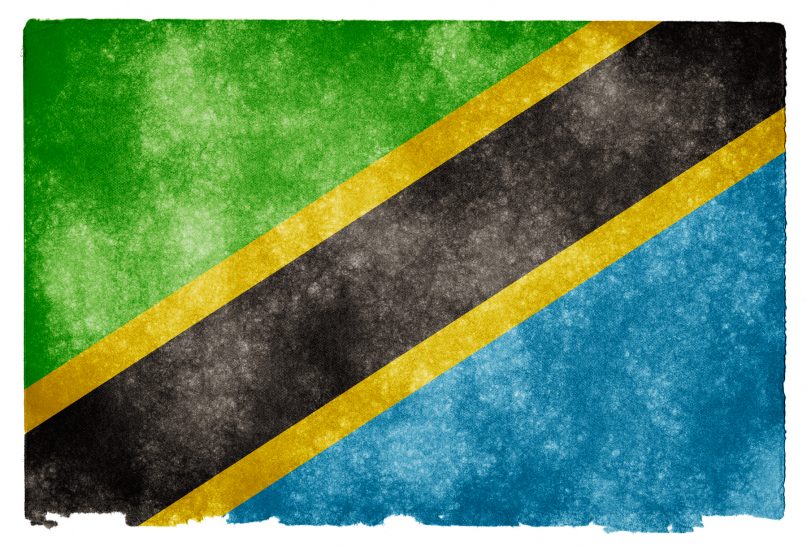This article is part of a series produced for Religion News Service’s parent organization Religion News Foundation with support from the Arcus Foundation and Heinrich Böll Stiftung Southern Africa. It emerged from a November 2017 journalism training workshop in Cape Town, South Africa.
ZANZIBAR, Tanzania — Heri Salum lives with his family in a small fishing village on the southern coast of Zanzibar. Like many youths in Tanzania’s semi-autonomous archipelago, Salum, whose name has been changed to protect his identity, helps his parents fish and farm. The 19-year-old’s life is ordinary but for one heavy secret. Salum is gay.
Sex acts between men are illegal in Tanzania and punishable with up to life imprisonment. Lesbian, gay, bisexual, transgender and intersex people are frequently arrested for their suspected sexual orientations or divergent gender expressions, some subjected to forced anal examination or charged with “moral offenses” including sodomy, debauchery and prostitution.
As Tanzania’s government continues the crackdown on LGBTQI+ people it began in 2016, sexual and gender minorities are devising new survival strategies to escape arrest and discrimination.
“It’s extremely difficult for LGBT people to live openly in Tanzania. Not only do they risk arrest, but social stigma is severe,” said Neela Ghoshal, a Nairobi-based researcher on LGBTQI+ rights at Human Rights Watch.
Raised in a conservative Muslim family, Salum first realized his sexual orientation while at secondary school in 2015 but has since kept it secret to avoid backlash from his highly religious community.
“I realized that I was not attracted to girls. I am attracted to the same sex, but it’s hard to express these feelings,” he said.
Three years on, Salum risks being isolated by his family and the entire community for refusing to marry a woman.
“My father doesn’t know I am gay, but he insists I must wed. I think the moment he knows it, he will expel me from home,” Salum said.
Salum is not alone. Many young people in Zanzibar and across Tanzania are demonized by their families and communities and some are expelled from school for championing the rights of LGBTQI+ people.
“It’s clear that not only LGBT people are at risk — anyone who tries to uphold their rights also faces arrest,” said Ghoshal.
To avoid intimidation and harassment, many LGBTQI+ people keep their sexual and gender identities secret, meeting discretely in cafés, nightclubs or private homes. Beyond these safe havens, discrimination is rife.
Haji Katemba, who works for an insurance firm, said his confidence and morale on the job started to wane last year as the company’s management became more homophobic.
“I am looking for a new job. My boss has refused to renew my contract without giving any reasons. I know I am being targeted because I am gay,” said Katemba, whose name has been changed to protect his identity.
In the bustling Kinondoni suburb of Dar es Salaam, 29-year-old Shaibu Rashid recently moved into a two-bedroom house after his rental contract in neighboring Kijitonyama was terminated.
“When my landlord realized I am gay, he accused me of teaching his children bad behavior and subsequently kicked me out,” said Rashid, whose name has been changed to protect his identity.
To avoid future problems, Rashid has chosen to live more secretly, refraining from any behavior he thinks might raise suspicions.
“I am not enjoying any freedom because I must always act and behave like a straight person,” he said.
Negative social and political attitudes towards LGBTQI+ people are pervasive across Tanzania. Stigma and widespread discrimination restrict their access to health care, housing and employment and can result in expulsion from school and isolation from family members, campaigners said.
“Unfortunately, the authorities seem to think human rights are optional and that the government can deprive people of these rights on a whim,” Ghoshal said.
In 2016, the regional commissioner for Dar es Salaam Paul Makonda threatened to use social media platforms such as Facebook and Instagram to identify and arrest suspected gay people and their followers.
Soon after, the government scrapped HIV/AIDS outreach programs for men who have sex with men and banned the sale and import of sexual lubricant, ostensibly to “prevent the spread of HIV/AIDS.”
Rights activists condemned these moves, but Tanzania’s home affairs minister Mwigulu Nchemba insists the current crackdown against LGBTQI+ people will continue indefinitely.
“The government is compromising the right to health of a segment of the population and seems impervious to evidence-based arguments that, to address HIV, marginalized groups need access to friendly services,” Ghoshal. said
She added that LGBTQI+ people in Tanzania want the basic rights to privacy, health and freedom of expression that everyone is guaranteed under international law, urging local human rights groups to help protect and support marginalized groups.
“It’s hard for LGBT people in Tanzania to speak out for their rights, but the situation gets even worse when no one else will speak out on their behalf,” she said.
Najma Abdul is a 26-year-old transgender and intersex hair stylist in Zanzibar. Dressed in an abaya, her hair wrapped in a hijab, she sits on a concrete slab in Forodhani Gardens waiting for her a bowl of hot urojo soup.
“If someone knows my sex is ambiguous, they will not serve me the food and will probably tip off the police,” said Abdul, whose name has been changed to protect her identity.
Abdul said she was nearly arrested when Zanzibar police raided a hotel last September and arrested 20 people, accusing them of promoting homosexuality.
“I did not choose to be the way I am. It happened so naturally. Why should anyone hate me for who I am?” she asked.
Kizito Makoye is a journalist based in Tanzania.





